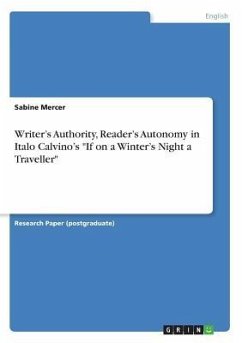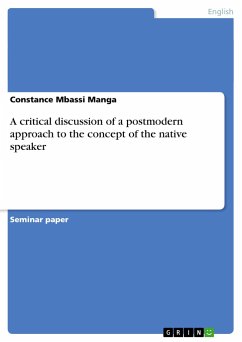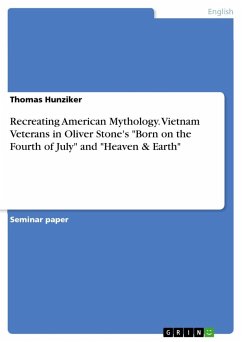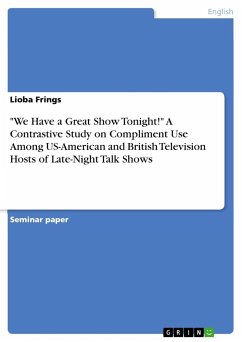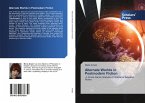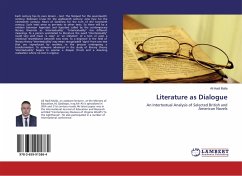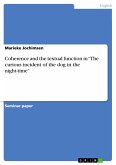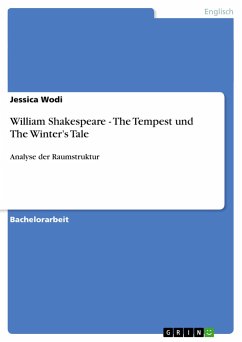Research Paper (postgraduate) from the year 2012 in the subject English Language and Literature Studies - Linguistics, grade: 1.0, Durham University, language: English, abstract: In a close reading of "If on a Winter's Night a Traveller" (1981), Mariolina Salvatori examines how Calvino's meditation on writer's authority versus reader's autonomy - understood as a battle between production and consumption of text or, in common parlance, the experience and difficulties of writing a novel opposite reading one - influences our understanding of the text. Focussing on how framing devices affect the reading of the novel as a whole, Salvatori poses pertinent questions about readers' autonomy. The following essay follows up on her insights and proposes that within the novel is buried a stringent critique of postmodern theories, especially deconstructionism, that dominated literary discourse in the nineteen-seventies. At that time, postmodern theory stressed the role of the reader and critics assumed that reading creates meaning from the text, independent from writerly intention. If texts are said to have no inherent meaning, there follows the extreme conclusion that any text can mean anything, depending on the manner in which it is read. One argument for reading Calvino's novel in this manner is still prevalent: embedded in a novelty form of fictional arrangement, the book is preoccupied with the metaphysical struggle for dominance between supposedly antagonistic forces: readers and writers; literature and literary industry. By putting the case for each side, Calvino implicitly questions who is 'master' and who is 'slave' in the production and consumption of texts. Following the postmodern transformation of an "authorial self" into a "textual self", the novel explores the relationships between readers, writers, their books and the ideas they engender, however ludicrous or possessive those ideas might play out. The plot is driven by the meditation on the nature of reading as much as on the nature of writing. Extremist attitudes regarding the production and consumption of books form the basis of an exploration of the general suggestion that there has been a reduction in the authority of the literary author. The ability of a writer to seduce and manipulate readers through a tightly controlled narrative strategy is examined to assess the extent of a reader's autonomy. As a writer of fiction whose fiction is clearly about the writing of fiction, Calvino uses game-playing within the aegis of meta-fiction to demonstrate writers' ability to exercise control by destabilizing the text and confusing readers.
Hinweis: Dieser Artikel kann nur an eine deutsche Lieferadresse ausgeliefert werden.
Hinweis: Dieser Artikel kann nur an eine deutsche Lieferadresse ausgeliefert werden.

